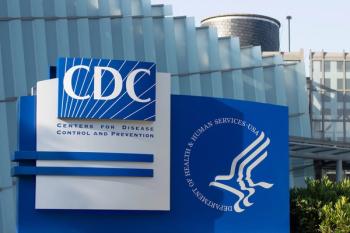
Adults Living With Chronic Health Conditions
Drs. Jason Lee and John J. Russell discuss the impact of chronic health conditions on adults.
Episodes in this series

Jason Lee, M.S., Ph.D.(c): Dr. Russell, here’s another graph for us to look at. The number of adults who are living with chronic health conditions certainly increases as they get older. What are the implications of this with influenza and the types of vaccines they should be getting?
John J. Russell, M.D.: We talked about how there’s decent vaccine uptake in seniors. Not great, but decent. Sadly, there’s relatively low vaccine uptake in adults with chronic medical conditions under the age of 65. There’s decent uptake in children. We sometimes assume that people under the age of 65 are healthy. I’m in my late 50s, and 60% of my brethren have at least one or more medical conditions. Often, the people who have the most morbidity and even mortality if they get influenza are the people who have an underlying condition. We need to [address] that.
You might decide to stratify your vaccine. We’re talking about high-dose vaccines for patients over the age of 65. There are some interesting data for the recombinant influenza vaccine in our patients over the age of 50. That’s maybe a different talk for a different day. But in my office, we recommend a recombinant influenza vaccine, which also has some better data for our patients who are 50 to 64 years of age. This is individualizing care, especially for our patients who have an underlying medical condition.
Jason Lee, M.S., Ph.D.(c): Great.
Transcript edited for clarity
Newsletter
Stay informed and empowered with Medical Economics enewsletter, delivering expert insights, financial strategies, practice management tips and technology trends — tailored for today’s physicians.







